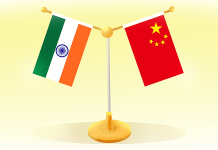
In the wake of statewide protests by Accredited Social Health Activists (ASHAs), Kerala Chief Minister Pinarayi Vijayan defended the state government’s role and redirected the blame toward the central government. Addressing the concerns raised by thousands of ASHA workers demanding fair wages, permanent employment status, and better working conditions, the Chief Minister asserted that Kerala has always been supportive of grassroots health workers.
In This Article:
Background – The Backbone of Rural Healthcare Raises Its Voice
ASHAs, who form the critical backbone of India’s rural health infrastructure, have long been plagued by delayed payments, lack of social security, and meager incentives. Their work includes maternal care, vaccination drives, and disease surveillance – roles that became even more vital during the COVID-19 pandemic.
Now, they have taken to the streets again in Kerala, demanding:
- Minimum fixed monthly wages
- Timely disbursement of incentives
- Formal government employee status
- Social security benefits and pension
- Regular dialogue with the health department
The protests have gained momentum across districts including Thiruvananthapuram, Kozhikode, and Ernakulam.
Pinarayi Vijayan’s Response – “The State Supports ASHA Workers”
In response to the growing dissent, CM Vijayan stated, “The majority of ASHA workers are aware that the state government wants to help them.” He reiterated that Kerala had always gone above and beyond to provide additional support to ASHAs, including financial incentives beyond those mandated under the National Health Mission (NHM).
He added, “It is unfortunate that the Centre has not done its part. The state has already paid more than its share, and we continue to do so even during times of financial crisis.”
CM’s Suggestion: “Protest Against the Centre”
The most controversial aspect of Vijayan’s statement came when he urged ASHA workers to “raise their voice against the Centre,” accusing the Union government of withholding funds and failing to increase the ASHAs’ base salaries despite repeated requests from state governments.
He implied that the Centre’s inadequate support was the root cause of the current unrest. “Let the protests reach those who have the power to fix the core issue,” he said, further distancing the state government from direct accountability.
ASHA Workers Remain Unconvinced
However, ASHA unions are not satisfied. They argue that the Kerala government has also failed to engage in meaningful dialogue or present a long-term solution. Union leaders stated, “We want action, not statements. The CM’s words are appreciated, but where is the written commitment? Where is the notification?”
They emphasized that while the Centre’s role is significant, the state must take proactive steps within its own jurisdiction, especially when Kerala has a reputation for progressive health policies.
Kerala’s History of ASHA Support: Mixed Record
To be fair, Kerala has a better track record than most Indian states in supporting ASHAs. The decentralized health model of the state, especially its role in pandemic response, has received national and international praise. The government has previously offered incentives and insurance schemes that go beyond NHM requirements.
However, critics argue that the efforts have been piecemeal and fail to provide ASHAs with long-term stability. Many workers say that the state has never institutionalized their employment or given them any form of job security.
Political Overtones Ahead of 2026 State Elections
With the 2026 state elections looming, the ASHA protest has taken on political overtones. Both the ruling Left Democratic Front (LDF) and the opposition United Democratic Front (UDF) are keeping a close eye on how the situation evolves.
Opposition parties have already started using the protests to criticize the state government for its “delayed and diluted response.”
Demands for Dialogue and Resolution
Union leaders and health rights activists are calling for tripartite negotiations involving the ASHA unions, the state government, and the central health authorities. They argue that without open dialogue, the protests will only escalate and impact rural healthcare delivery.
One of their key demands is that ASHA workers be recognized as government employees rather than volunteers, which would entitle them to salaries, health insurance, and pensions.
Moving Forward– Tug of War Over Responsibility Continues
As the crisis deepens, it’s clear that ASHA workers are no longer content with symbolic support or token incentives. They seek structural changes and a sustainable employment model.
While CM Vijayan has tried to highlight Kerala’s contributions and shift responsibility to the Centre, the workers on the ground want more than political blame games—they want change.
For now, the tug of war between the Centre and the state over responsibility continues, with Kerala’s 26,000+ ASHA workers caught in the middle.
By – Nikita



